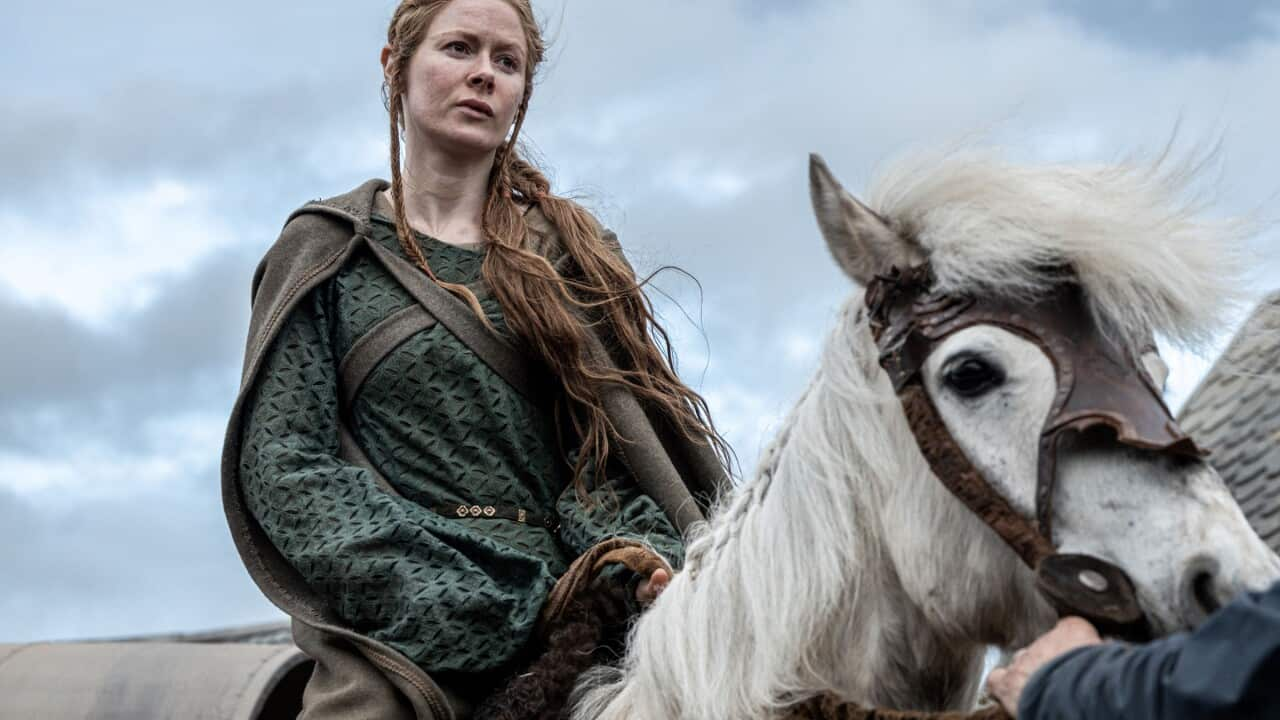Upon the death of King Edward in 1066, with no son waiting as heir to the throne, the future of England was uncertain. A political power struggle in the early 11th century left two options as England’s future king: Harold Godwinson, the Earl of Wessex, or William of Normandy.
As the story goes - according to the authors of history – Edward the Confessor pointed to the person he wanted as his successor while on his deathbed, moments before his passing. Who exactly he pointed at is still unknown, but this act ultimately became known as the catalyst for the Battle of Hastings in 1066.
William and Harold, former friends turned fierce rivals, met at the Battle of Hastings, a clash that would forever change the course of history.
But delve a little deeper into the story, and you’ll find it’s not as simple as two men vying for the throne of England. What’s missing from historical accounts are the other important figures - mostly women – who play a significant yet understated role in the outcome of the Battle of Hastings.
Director Baltasar Kormákur’s series King & Conqueror is the first to dramatise this watershed moment in England’s history. And unlike the history books, which tell a simple tale of war and rivalry between William the Conqueror and King Harold of Wessex, this eight-episode period drama introduces two fascinating men and, importantly, the women who bolstered their respective pursuits of power.
International superstar and Emmy-nominee Nikolaj Coster-Waldau stars as William the Conqueror, alongside Britin’s own acclaimed actor James Norton as Harold. The pair portray the complex, compelling relationship between Harold and William in their drive towards the throne - as friends, as battlemates and as destined enemies at the Battle of Hastings.
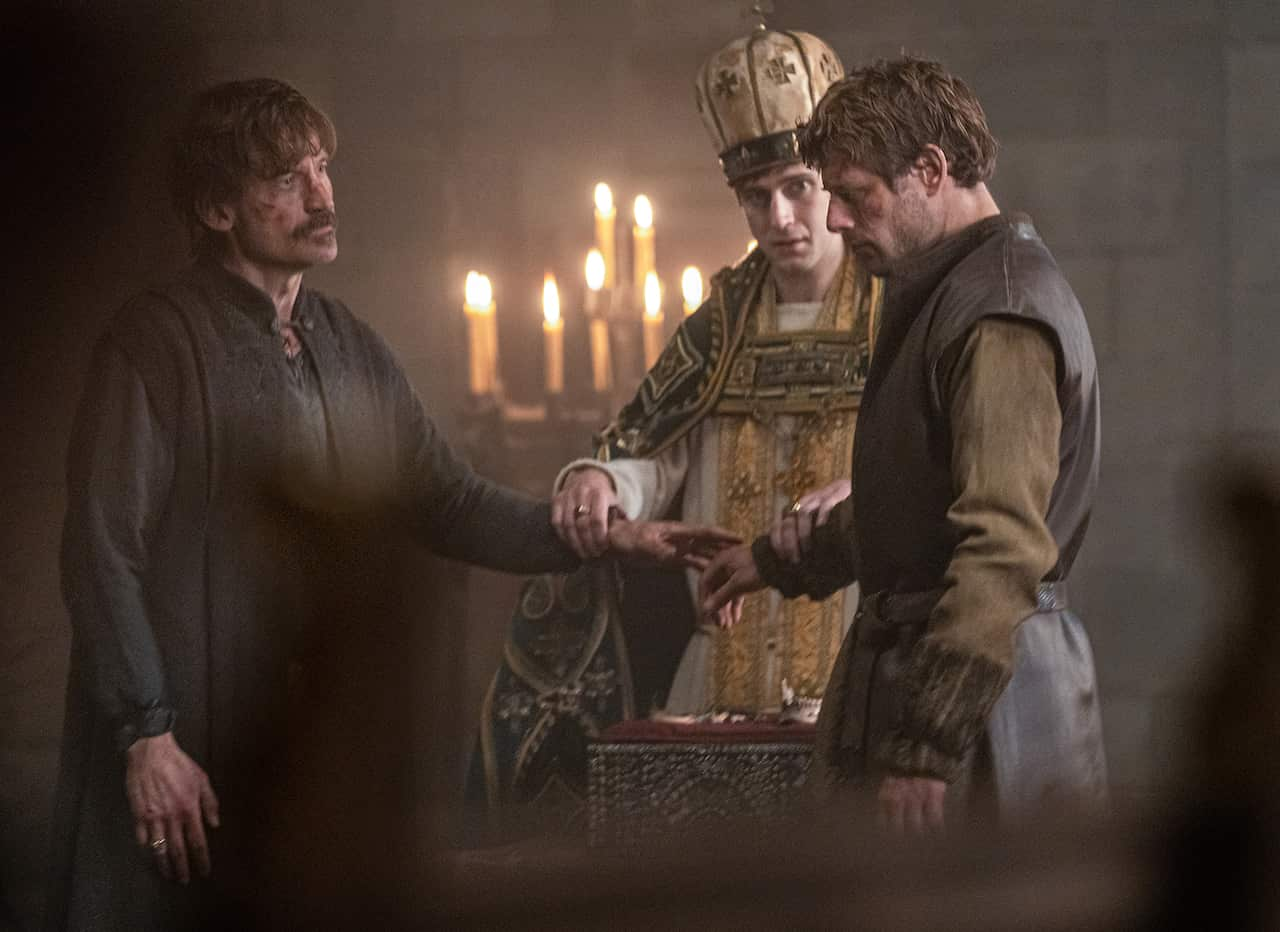
But as Coster-Waldau tells SBS, it’s “boring” to only hear about the “great men” of history - and only great men. It’s not lost on the Game of Thrones actor that William of Normandy would be nowhere without Matilda, the Duchess of Normandy, portrayed by French actress Clémence Poésy.
Matilda is not just William’s wife, or the father of his child - she is his closest and most trusted advisor in every decision he made, as the Duke of Normandy, but also as a human.
“(William’s) relationship with his wife, Matilda, is at the very core. It’s the reason for his later success that they were able to create that union,” says Coster-Waldau.
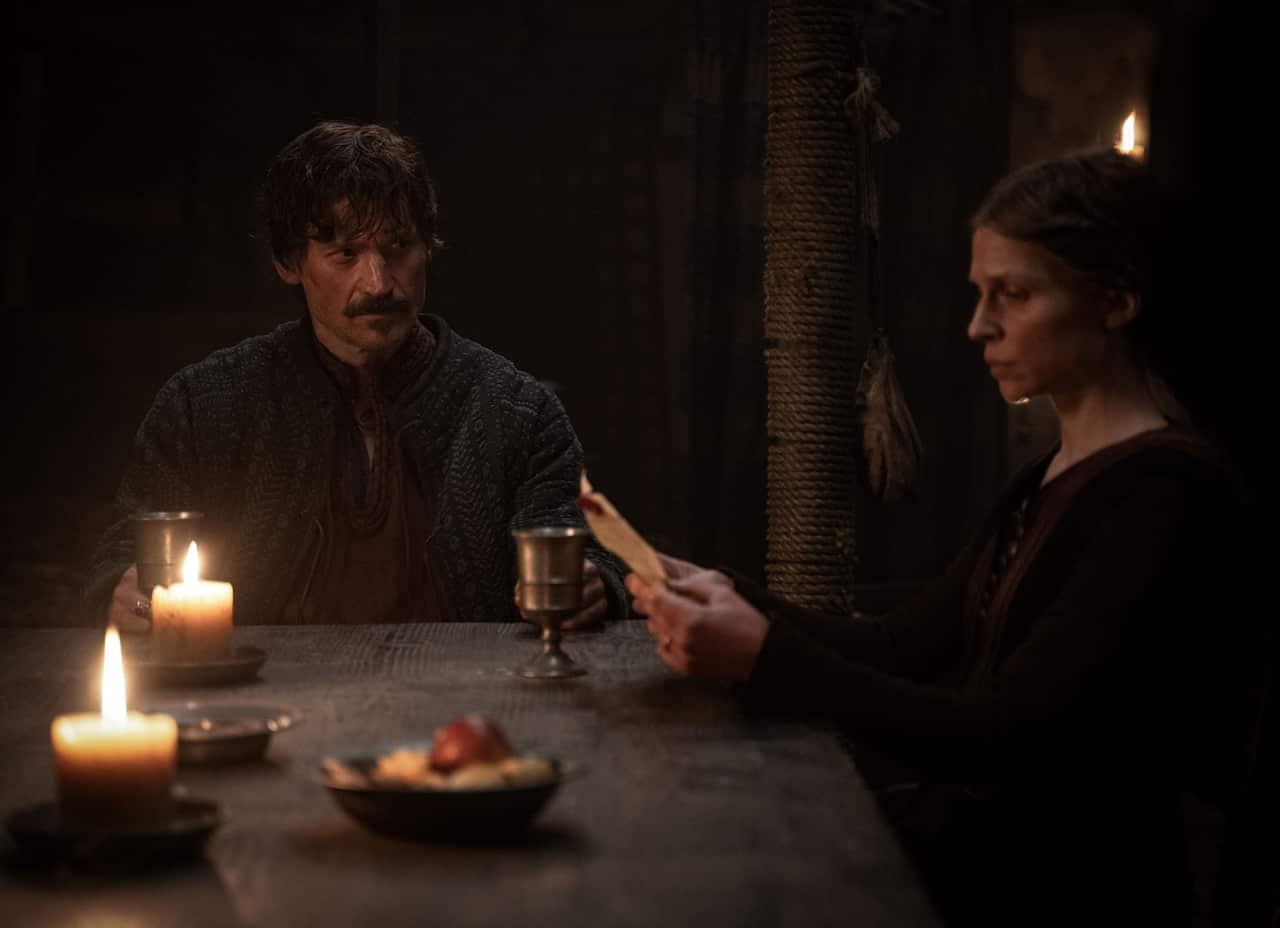
“They have conflicts, but they both fundamentally love and respect each other and want to help the other. Matilda understands politics in a way that he doesn’t. And he acknowledges that.
“In the end, I really believe… the Battle of Hastings would have had a different outcome without Matilda.”
Similarly, King Harold’s own journey towards total control of England began merely as an attempt to protect his family, including his wife, Edith Swan-Neck, played by award-winning British actor Emily Beecham. Married under common law and not through the church, Edith and Harold’s love is pure and real in King & Conqueror. For Harold, family and his relationships always came as a priority, until it didn’t – when power became all-encompassing.
Norton, perhaps best known for playing Tommy Lee Royce in Happy Valley, recalls the process of developing the characters from brutal historical figures to human beings by fleshing out the relationships in the story.
“We realised this was about two couples, rather than two men,” Norton tells SBS.
“In the history books, he’s described as this kind of war machine… a man defined by violence. And actually, what we realised was that – and what is often the case with men who pursue power at all costs – there was a reason behind that, and that existed in his family.
“All of that stuff really unlocked loads for me, and made his journey human and relatable, and deeply complex and rich.”
For Emily Beecham, her character Edith plays a significant role in the story of the Battle of Hastings and the rise and fall of Harold Godwinson. To tell Edith’s story – one that often goes untold – alongside Norton, she says, was “a real gift”.
“We have a natural chemistry together, and that was obviously very important to capitalise on that, and really bring their relationship to life, because it really elevates the story, it gives it its depth,” says Beecham.
“We (Edith and Harold) have a conflicted relationship, and that obviously comes out and it brings a lot of nuance and complexity and romance and volatility… They become three-dimensional human beings.”
The power of women in war and politics is not only confined to the domestic space, however. We see this through Juliet Stevenson’s portrayal of Lady Emma, the mother of King Edward, often known as Edward the Confessor.
The word “king” may evoke certain words: “strong”, “powerful”, “a leader”. While these words fail to describe who Edward the Confessor was, they fit the bill for Lady Emma, the cunning, puppeteering figure not just behind Edward’s reign, but also the political behind-the-scenes of the power struggle between William and Harold.
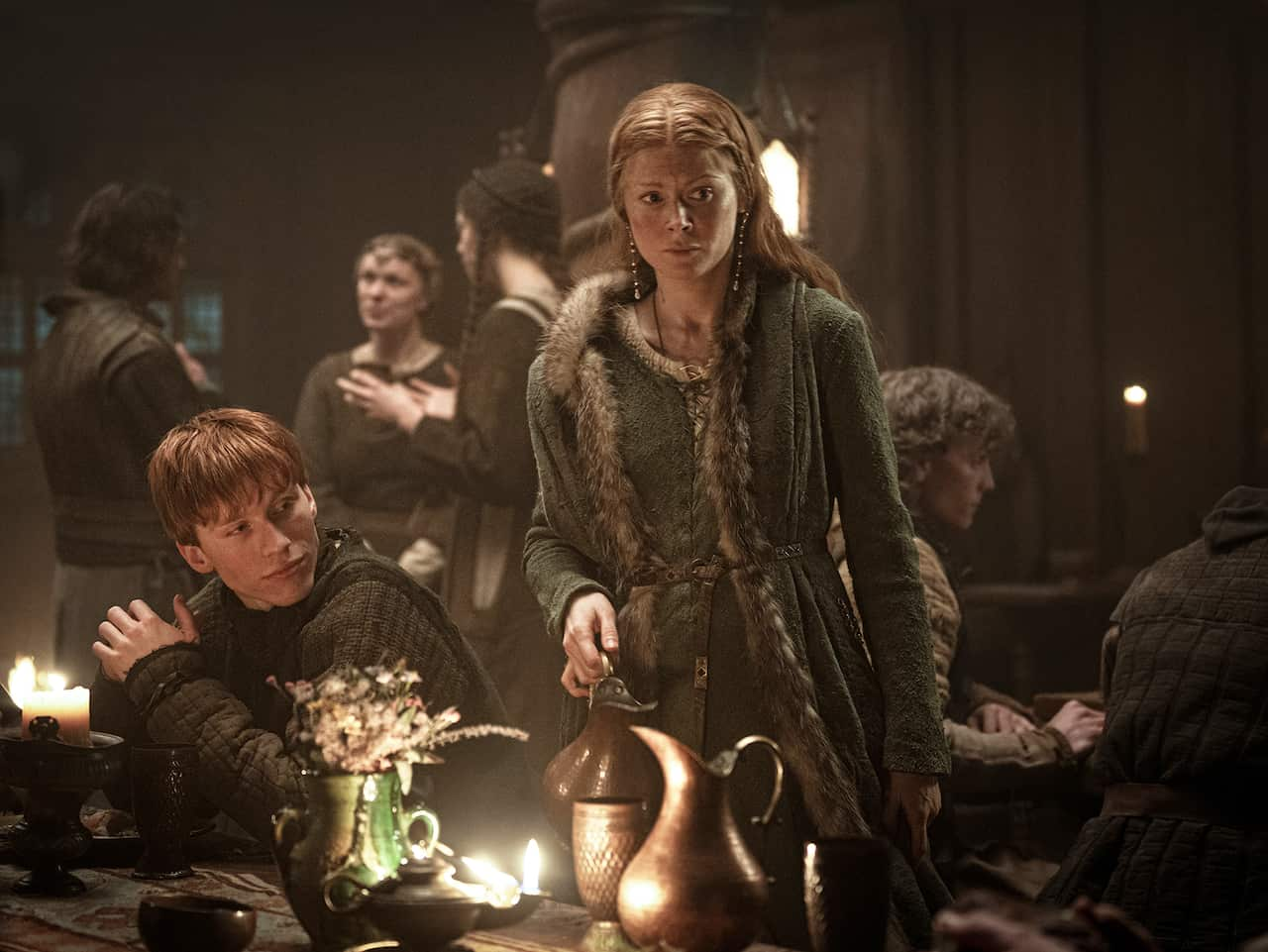
To put it in the words of Eddie Marsan, who portrayed Edward in King & Conqueror, the man was an “eccentric, asexual mummy’s boy”. His sexuality was a key detail for Marsan: as the King of England, there would have been enormous pressure on Edward to produce an heir and maintain the legacy of his family, or rather, his mother.
“I was intrigued by his sexuality, because in the story he’s asexual, and I don’t know whether that’s because of his relationship with his mother, or whether his sexuality was more on a spectrum,” he says.
“I suspect he was probably gay but couldn’t accept it, and that was part of his religious fundamentalism as well.”
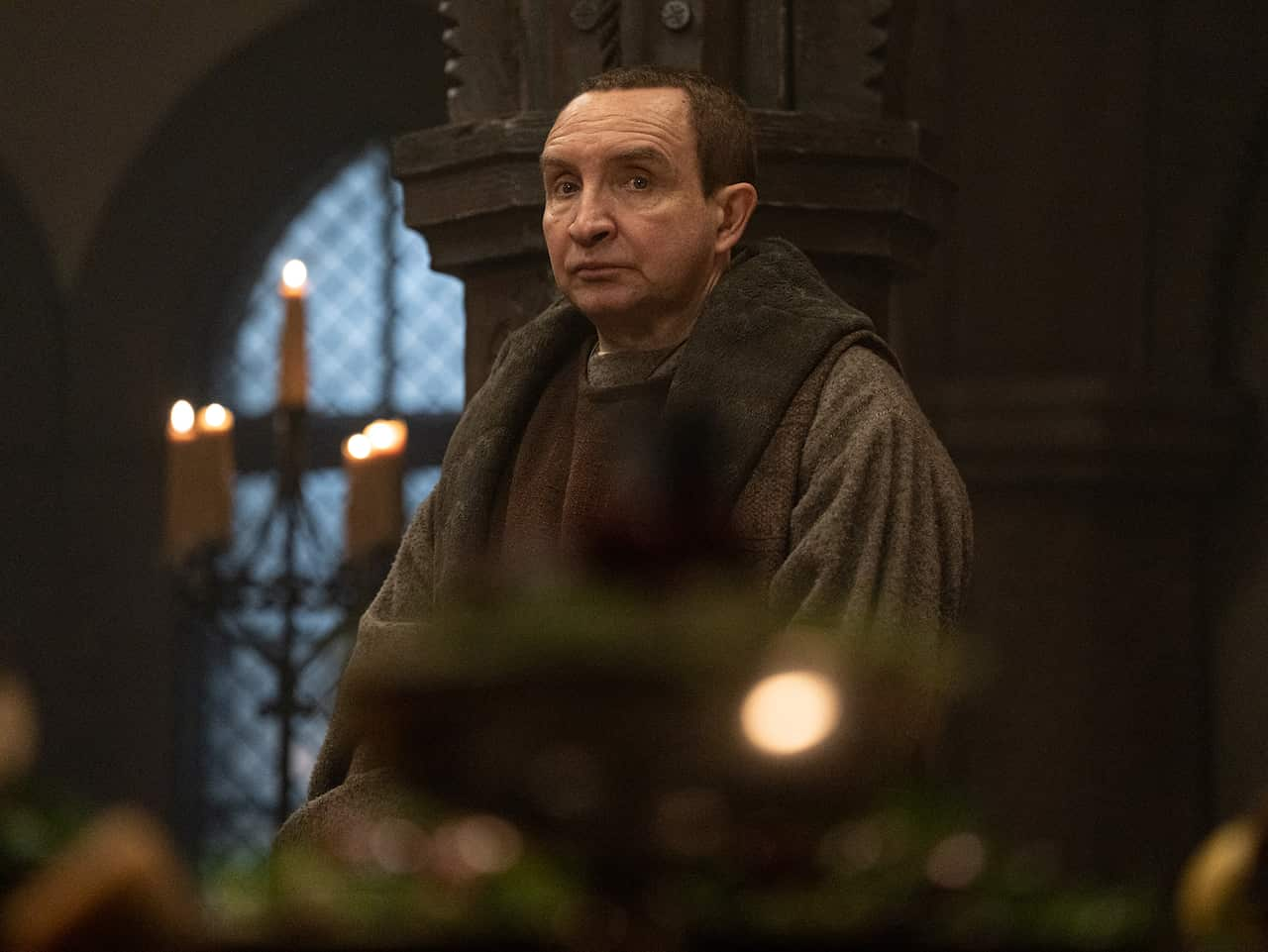
Lady Emma’s character and her relationship with Edward epitomise just how important women were in the story of the Battle of Hastings and everything that unfolded before the conflict, despite their roles being largely absent from historical accounts.
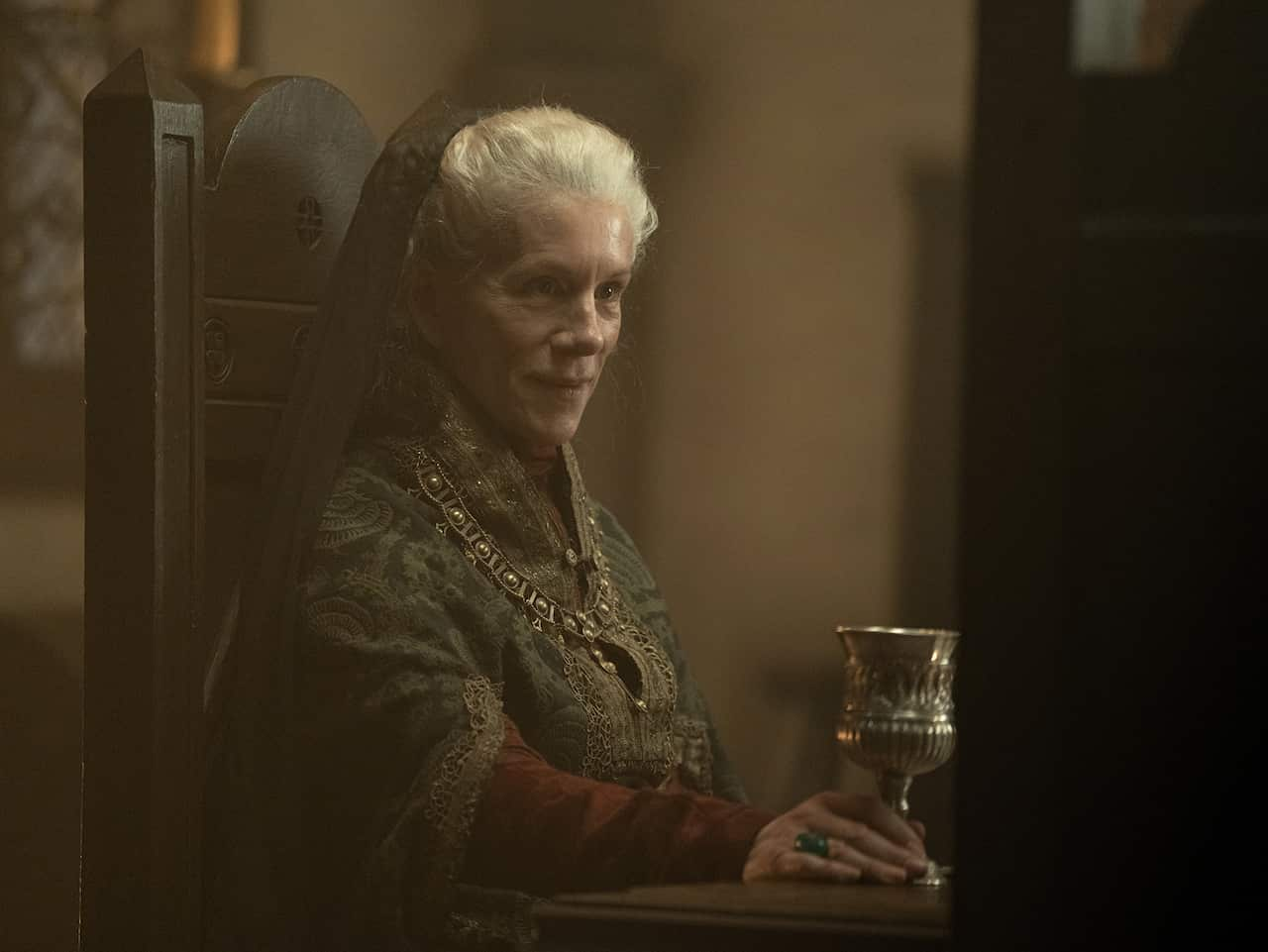
“(Lady Emma) is very Shakespearean, she’s very much like a Lady Macbeth character,” Marsan continues.
“(Edward) is a terrified man. The fascinating thing about him is that he’s not a man of incredible faith, but incredible fear. His faith didn’t stop him from being scared.”
The outcome of the Battle of Hastings is mired in controversy - who was the rightful king: Harold or William? Perhaps what we should be asking is: where would these “rightful leaders” be without the women in their lives?
King & Conqueror premiered 12 October in Australia, with episodes 1 and 2 now streaming at SBS On Demand Episodes are also airing on SBS. Find the full details of how to watch here:
